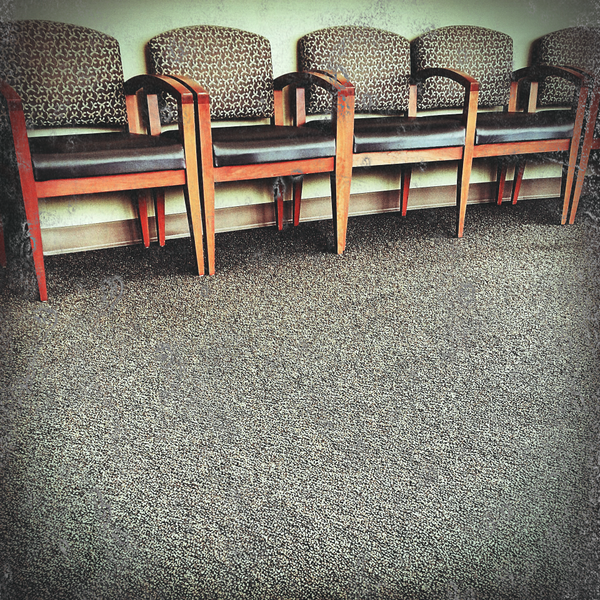Gerechtigkeit ist blind

Gerechtigkeit ist blind (Justice is blind)
Author’s Note: My inspiration for this piece came from a long-held, fond memory of an episode from The Twilight Zone, featuring the American actor Burgess Meredith, who died in 1997 aged 89—described one of the most accomplished and virtuosic actors of the century. The Twilight Zone episode in question was Time Enough at last, the eighth episode of that American television anthology series. Meredith played the character Henry Bemis, who ‘loves books but is surrounded by those who would prevent him from reading them.’ The opening narration to the eighth episode states, in ominous tones:
Witness Mr. Henry Bemis, a charter member in the fraternity of dreamers. A bookish little man whose passion is the printed page, but who is conspired against by a bank president and a wife and a world full of tongue-cluckers and the unrelenting hands of a clock. But in just a moment, Mr. Bemis will enter a world without bank presidents or wives or clocks or anything else. He’ll have a world all to himself… without anyone.
It is Saturday, October 27, 1962—the twelfth day of the Cuban Missile Crisis. As tensions reach a near-breaking point, the world holds its breath, preying that two hostile superpowers will step back from the brink and avoid a nuclear conflagration.
Meanwhile, in Germany, Herr Heinrich Müller, a curmudgeonly seventy-year-old lifelong loner with an acerbic tongue—and a die-hard bibliophile—visits the central library of his city, much to the vexation of staff and patrons. Well known as demanding and rude, he has scant regard for the needs and reading pleasure of others; only the routine Sunday closure affords them some respite from this odorous little man.
Herr Müller has an extreme case of presbyopia—an inability to focus with clarity on close objects, especially text. This fuels his cantankerous nature, because of his inability to satisfy, in full, his great love for books. Such poor eyesight means always having to wear his only pair of ‘coke-bottle’ prescription reading glasses. His glasbaustein (glass block) lenses add to his hässlich—the aesthetically unfavourable, or ugly, appearance of his facial features; he is often seen to adopt an unattractive and mean face, which it will surprise no-one to learn, extended to his character. True to form, he spent his Saturday exasperating staff and library users alike.
It is now late Sunday morning—October 28, 1962. A heavy sleeper by default, Herr Müller’s slumber had been no less profound that night. For this reason, he had not responded to the extreme flashes of light, thunderous noises, and tremors that had stricken the planet for hours. With the failure of political negotiations, the inconceivable, but inescapable, had occurred… the launch of intercontinental ballistic missiles by the Soviet Union, with retaliatory strikes by the Americans and their allies. In the ensuing maelstrom, global civilisation is all but extinguished.
Awake now and risen from his bed, the scene that confronts Herr Müller confounds him. Window glass and other debris litter his floor; a fine film of dust covers every surface. He clears his fuzzy vision with balled fists then, squinting, registers with incredulity the apocalyptic scene of devastation that greets him through the shattered space so recently occupied by a draped window—that of an otherworldly panorama bearing no similarity to his previous memory of the place. He stares, transfixed, but cannot see or hear any other living thing. The realisation dawns that by some miracle he has survived a cataclysmic event, but what? Unmindful of day, or time, his thoughts turn without delay to the object of his daily preoccupation for many years—the books at his local library. He must go to them, as he fears for their wellbeing. Nothing else matters.
Herr Müller picks his way, with tentative steps, through devastated, deserted streets. Exhausted by his exertions, he turns one last corner to behold his beloved library—and lets out a cry of despair. Something has ripped the large, ornate double doors wide open. In a state of panic, he stumbles up the wide library steps and enters the lobby. He calls out, failing to appreciate it is Sunday. No-one will answer. No-one can.
For the first time in his life, Herr Heinrich Müller has every book in this vast collection to himself. They are all his, without condition. Forever. There is not a soul to trouble him, to frustrate his desires. Heedless of civilisation’s plight, he bounds about in sheer delight, howling like an excited child in a toy shop when told they can have any toy they wish... and his glasses fly from his face. The precious, irreplaceable lenses shatter into shards on the marbled floor. His beloved but mute books bear silent witness. Books he will never read again.




